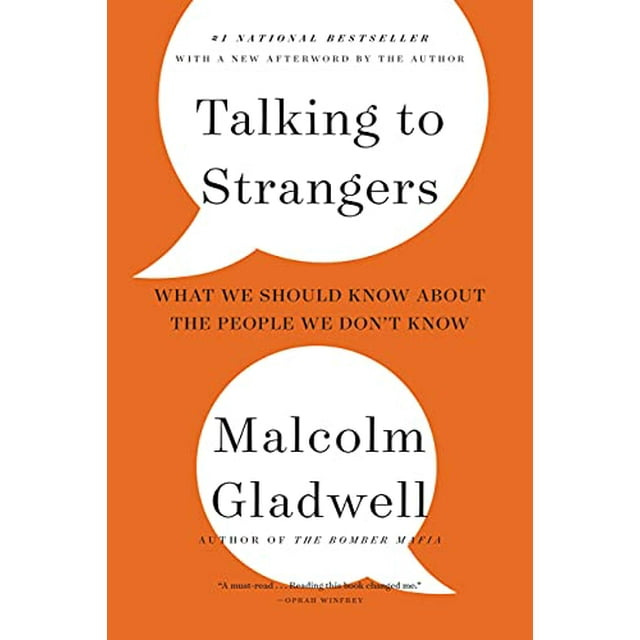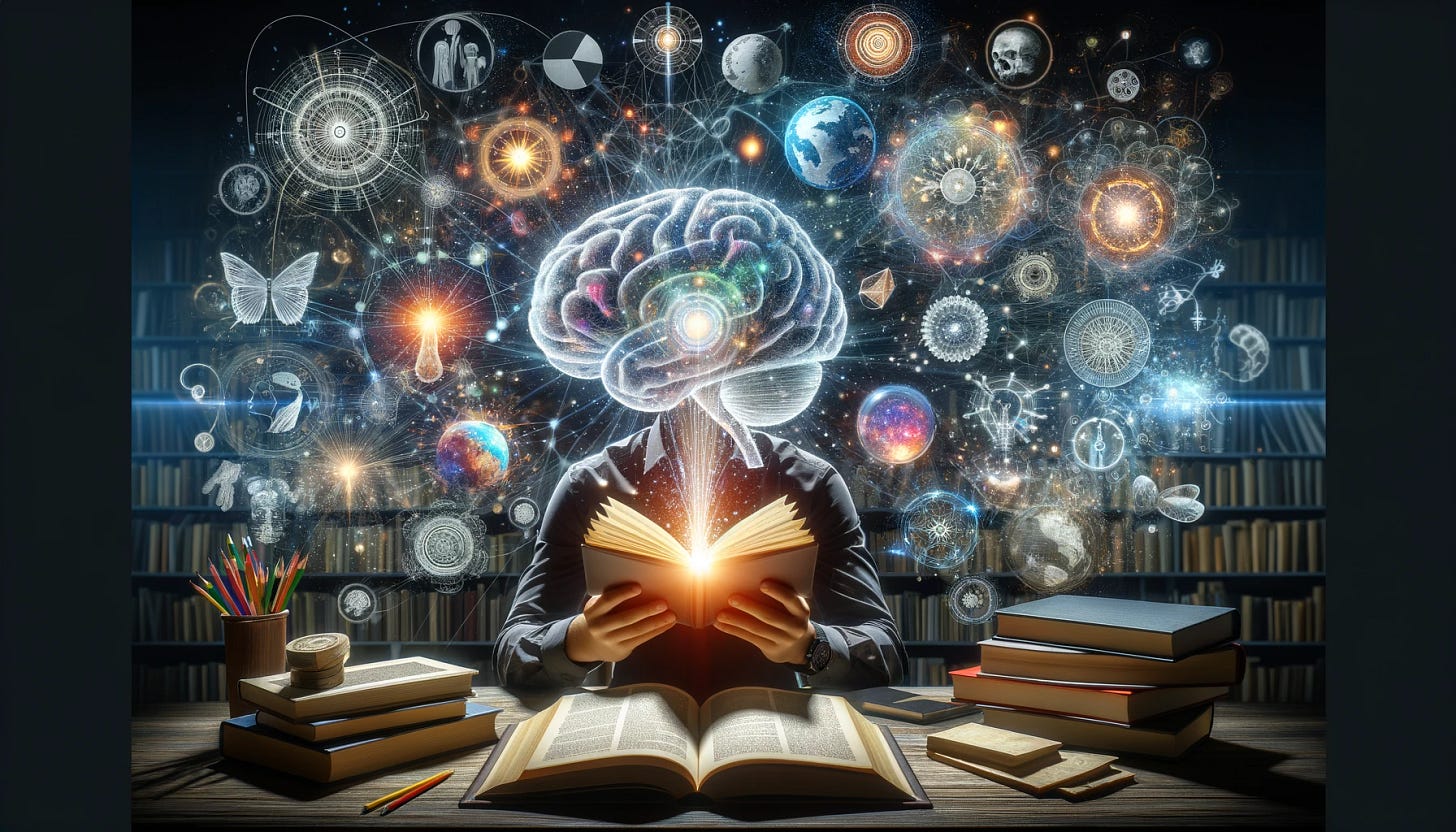Default to Truth?
Only when it helps us
Welcome to Polymathic Being, a place to explore counterintuitive insights across multiple domains. These essays take common topics and investigate them from different perspectives and disciplines to come up with unique insights and solutions.
Today's topic is part book review and part insight into how our brains work on interpreting the world around us. It’ll challenge our bias to look for anything that agrees with our worldview and open up new possibilities to learning and adapting.
“Everyone is biased, the key is knowing what yours are.”
I recently read the book Talking to Strangers by Malcolm Gladwell on the recommendation of my Mother (also a fan of Polymathic Being!) What’s interesting is that, unlike some of his other books, it leaves a lot of questions that a simple reading might hide. For today, I’m going to pick on just one: Default to Truth.

Default to Truth
Gladwell goes to great lengths to point out that humans have a bias toward trusting that the things they are told are truthful. His examples span from Neville Chamberlain believing Hilter to double agents in the CIA to how we feel we can trust what people say while often being blind to their other behaviors and actions.
On the surface, he makes a strong case for people being duped because they trusted. I see evidence of this in a lot of places. For example, as we covered in How to Identify a Good Leader, my terrible leaders were always believed by their leadership. It took actual ethics violations or particularly egregious behaviors before the scales finally tipped and the real truth came out.
But flip this around. The default to truth is only half the story. In each of the examples Gladwell shares there’s an inverse of default to truth… it’s the default to dismissal. I haven’t quite put my finger on it but we seem to default to believing what we really want to be true while often dismissing the actual truth. Using examples from the book:
Neville Chamberlain really wanted to believe that Hitler wouldn’t start a second world war so he believed Hitler notwithstanding what was said in Mein Kampf.
The CIA really wanted to believe they they were a premier spy agency and didn’t have a ton of double agents so they ignored the evidence.
Penn State leadership really wanted to believe beloved coach Jerry Sandusky wasn’t a pedophile and so overlooked a lot of suspicious behavior.
Investors really wanted to believe Bernie Maddoff and never really dug into his incredulous investment returns.
So, the default to truth is more like a default to confirmation bias conveniently smoothed over by cognitive dissonance. We explored both of these in the essay You Know Nothing. Fundamentally, We only default to truth when it’s in our interest.
Let’s go back to that essay on leadership. I had a terrible boss whose leaders believed her and refused to ‘default to truth’ for the dozens of team members who filed complaints.
Think about this with politics. You default to truth when your political party says something and yet immediately default to skepticism or outright dismissal when the opposing party says something.
I don’t think it’s a default to believing a stranger, it’s a default to confirming the biases you already have in place regardless of where the new information is coming from. You’ll readily accept something you agree with or that benefits you. Then you’ll equally dismiss something that challenges your worldview.
The Internet, AI, and Scammers
We’ve all likely heard the stories of the Nigerian Prince scam but just to recap, this scam typically involves promising a significant share of a large sum of money in return for a small up-front payment. The fraudsters claim your payment will be used to obtain the large sum and promise a huge cut.
Why do people default to truth in this case? Because they want the payout to be true, not because it is true. This is a great example of how we only default to truth when it’s in our interest. The rest of the scams tend to follow a similar pattern to prey on our default to what we really wish could be true that could also result in a massive benefit to us.
I want to underscore how important this is going to be as AI continues to permeate social media and attempts to feed our biases and our desires for what we want to be true even if it isn’t. We’ve been prone to this for time immemorial and it’s the foundation of psychological and information operations that we sometimes call ‘propaganda’.
We are already seeing people fall victim to clear AI-generated imagery and ‘news’ because they so desperately want it to be true instead of defaulting to find the actual truth. This is where our systems thinking concepts come into play where we can step back, slow down, and analyze the true problem.
In Summary
The number of times I’ve brought the actual truth forward to people I care about and had them doubt or reject it could fill hundreds of stories. I wasn’t some random person sharing crazy information. I was often well-known but was sharing things that challenged what they already believed.
They weren’t inclined to default to the real truth. They were defaulting to protect what they already believed, or hoped the truth would be. Simply put, a default to truth is, more often than not, just confirmation bias.
If we want to reset our default to truth, we have to be willing to step back and challenge our biases. As I like to say, “Everyone is biased, the key is knowing what yours are.” Only then can you start working in new information that can actually uncover what the real truth is.
A key to doing this is captured in our investigation into Critical Thinking focused on knowledge gathering, logical structuring, and most importantly, applying critique to what we think we know. In this way, we can improve our default to the actual truth.
Enjoyed this post? Hit the ❤️ button above or below because it helps more people discover Substacks like this one and that’s a great thing. Also please share here or in your network to help us grow.
Polymathic being is reader-supported. These essays are all free but your financial support goes a long way to helping keep these open for everyone!
Further Reading from Authors I really appreciate
I highly recommend the following Substacks for their great content and complementary explorations of topics that Polymathic Being shares.
Goatfury Writes All-around great daily essays
Never Stop Learning Insightful Life Tips and Tricks
Cyborgs Writing Highly useful insights into using AI for writing
Educating AI Integrating AI into education
Mostly Harmless Ideas Computer Science for Everyone






Great piece. As for blind acceptance of truth (or dismissal), I see this happen a lot in politics. While I certainly am no fan of the mainstream media, this ideologically driven dismissal or acceptance of information is the driving force behind the “fake news” trend in America.
As much as I detest the media, I abhor the term “fake news” even more, for it neglects nuance, and is a catch all for all reporting and facts that “I don’t like.”
Just because you do not like something, does not mean it is fake (though sometimes it may be a misleading half truth).
There is no honor in the media and our politicians use this to mask their own flaws and lies. That is just another reason I write about cutting out the middlemen and going for some kind of direct democracy.
Yeah I think the more accurate phrase would be "default to (your own) truth" - that explains why stuff that coincides with our pre-existing beliefs and assumptions is absorbed more easily and why we put up defenses by being skeptical of stuff that doesn't align with what we already think.